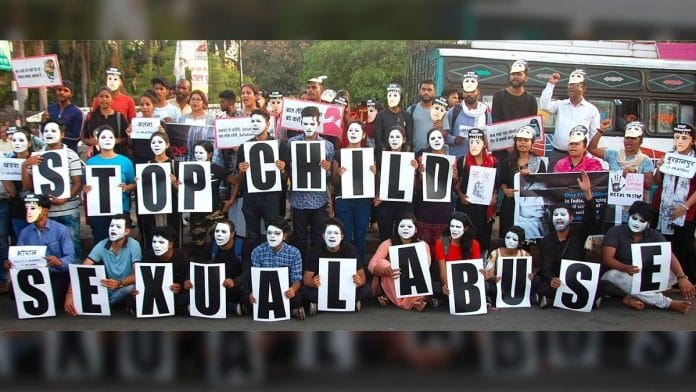New Delhi: The Delhi Police have arrested 97 people over the past two days in a massive crackdown on child pornography called operation ‘MASOOM’, an Urdu word meaning innocent and also an acronym for Mitigation of Adolescent Sexually Offensive Online Material.
Since the operation was launched Wednesday, 160 cases have been lodged at different police stations across the capital city, ThePrint has learnt.
“This is a pan-Delhi operation, organised by the Intelligence Fusion and Strategic Operations (IFSO) unit of the Delhi Police Special Cell,” DCP (IFSO) K.P.S. Malhotra said. “Operation Masoom was coordinated by the IFSO unit of the Special Cell and all the districts played an instrumental role in making it an enforcement success. Cases have been lodged across all police stations in the capital city.”
According to the police, details of violations pertaining to child pornographic content are received at IFSO through the National Crime Records Bureau (NCRB).
Also read: Fake customer care numbers, OTP access — how a gang in Jamtara cheated over 1,000 people
US organisation sends data to India
The NCRB has a memorandum of understanding with the US-based National Center for Missing and Exploited Children (NCMEC), a private, non-profit organisation established in 1984 by the United States Congress. The NCMEC has tied up with social media platforms such as Facebook and Instagram, among others, to sift through content and flag them with the authorities concerned whenever there are violations. The NCMEC also tracks the IP address of users who upload such content.
NCMEC provides the NCRB with information and CyberTipline complaints about sexually offensive content against children from India. CyberTipline is a US initiative that tracks online exploitation of children.
These complaints, along with details of the person sharing and uploading such sexually offensive content, is forwarded by NCMEC to NCRB, which then shares them with state nodal agencies.
The Delhi Police’s IFSO is the nodal agency in the city for the crackdown on child pornography.
“At the IFSO unit, the details received from NCRB are analysed for the purpose of identification of any organised nexus,” DCP Malhotra said. “The IFSO unit analyses all the inputs and identifies the suspects. Thereafter, the information is disseminated with the concerned officers to take further necessary legal action.”
IFSO had initiated the drive against child pornography in 2019, and inputs were received from NCMEC and NCRB then too.
(Edited by Arun Prashanth)
Also read: Delhi Police arrest suspended Manipur constable, ‘kingpin’ of interstate heroin cartel






